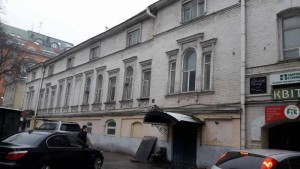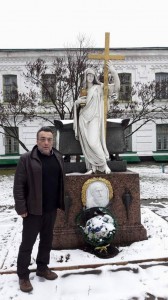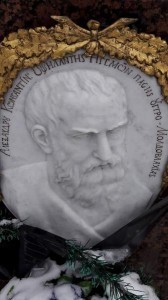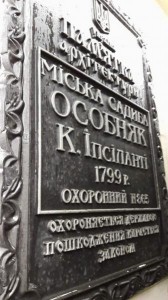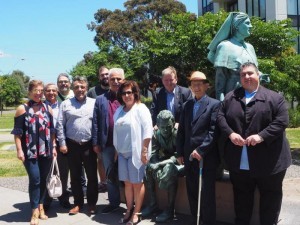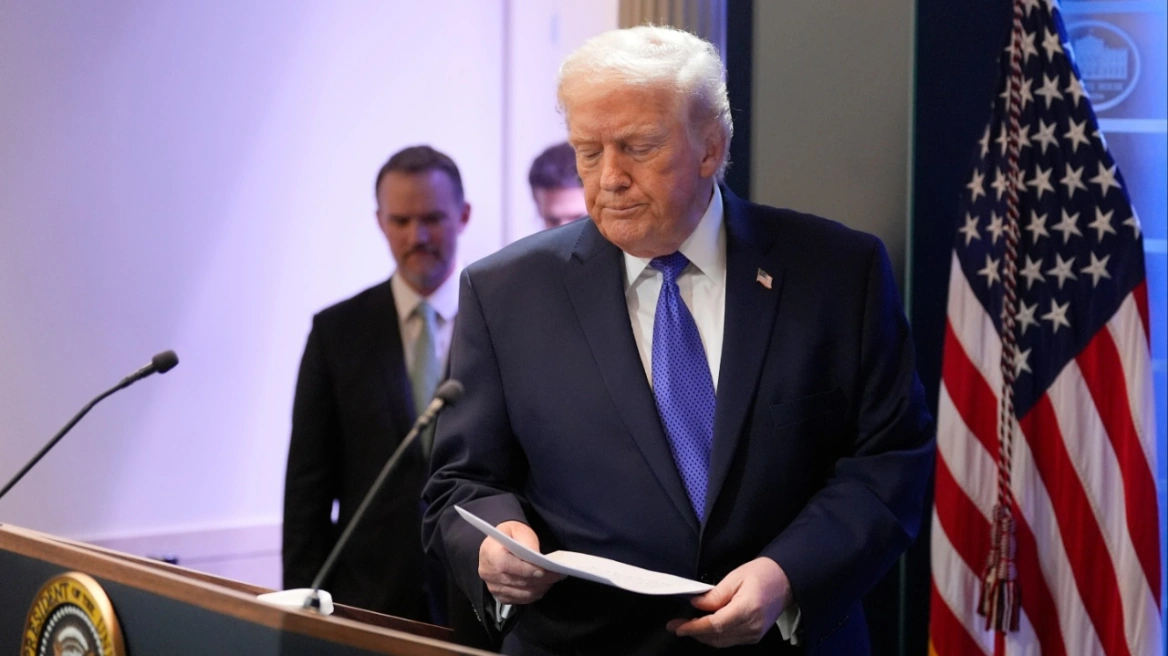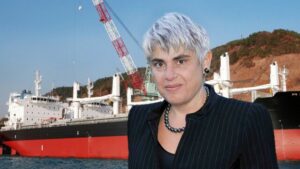By Jim Claven
The historic city of Kiev contains many secrets – and one of those is its connection to the creation of modern Greece.
Not far from the town centre stand two memorials to a dynamic figure who played a key role in the movement which led to the Greek War of Independence in 1821 and the establishment of the modern Greek state: Prince Constantine Ypsilantis.
The Ypsilanti family are an ancient one, with origins in Pontus and the Byzantine Empire. Born in Constantinople in 1706, Constantine soon joined the conspiracy to establish an independent Greece.
After fleeing to Russia upon the discovery of the independence movement, Constantine and two of his five sons, Alexandros and Dimitris, distinguished themselves in the Russian military service.
Constantine played an important role providing much needed funds for the military campaign for Greek independence in which Alexandros and Dimitris played leading roles.
For his services, Constantine was awarded a home in Kiev by the Russian Tsar and died there in 1816. He did not live to see his beloved Greece liberated from Ottoman rule.
Hellenes repaid this Russian support for the liberation of Greece by volunteering to serve on the Russian side in the Crimean War in 1854-56.
(Dimitris Konstantinidis at the grave of Constantine Ypsilantis in Kiev)
A magnificent painting hangs in Athens’ Benaki Museum depicting the enlistment of those volunteers and their departure for war.
Constantine’s home and his burial memorial were recently discovered by Greek Australian journalist Dimitris Konstantinidis.
Following up on research and assisted by the Ukrainian authorities and Greek Embassy in Kiev, Dimitris was able to locate and visit both sites.
Constantine’s former home is an impressive two-storey building and bears an impressive memorial plaque honouring its famous Greek former resident.
Recently used as the location for a small museum, the building is owned by Ukrainian authorities. Not far from the home is a Russian Orthodox Church and monastery complex with a cemetery that contains an impressive memorial to Constantine Ypsilantis.
(Detail from the grave of Constantine Ypsilantis in Kiev)
Dimitris was so impressed by his discovery that he has begun a campaign to relocate the Embassy of Greece in Kiev to this building and in the process restore an important part of Hellenic heritage with a new purpose.
“What better location for the embassy of the Hellenic Republic than the former home of one who did so much to make modern Greece a reality? The restored building could also house a Hellenic cultural center, reminding visitors of its historic connection and the role of Kiev in the liberation of Greece,” Dimitris said.
On his recent visit to Melbourne I interviewed Dimitris about his find and his campaign.
(The former home of Constantine Ypsilantis in Kiev)
I took him to the Lemnos Gallipoli Memorial in Lemnos Square, Albert Park. We were joined by members and supporters of the Major George Devine Treloar Committee.
Dimitris was impressed to see the memorial and welcomed moves to erect a memorial to the renown Australian war veteran and refugee helper in Ballarat.
“Physical memorials are an important part of our connection to our past. They challenge us all to learn more about these people and events that played such an important role in our history – in both Greece and Australia,” he said.
Dimitris’ campaign to restore significance to Ypsilantis’ home and grave in far-off Kiev is no different to those in Melbourne who wish to honour the birthplace of one who saved tens of thousands of Greek and other Christian refugees following the Asia Minor catastrophe.
(The memorial plaque erected outside the home of Ypsilantis)
“These projects honour the work and service to the Hellenic people of those who came to help from afar – Constantine Ypsilantis from Russia, and George Treloar from Australia – but each assisted in their own way in the creation of modern Greece,” Dimitris added.
And how appropriate that many of the Hellenic refugees assisted by Ballarat’s George Treloar hailed from Pontus – the homeland of the Ypsilantis family.
Acknowledging Dimitris’ own Pontian heritage, Litsa Athanasiadis of the committee welcomed his efforts to acknowledge Ypsilantis and his connection to Kiev.
(Dimitris Konstantinidis -fourth from left- with members and supporters of the Major George Devine Treloar Memorial Committee at the Lemnos Gallipoli Memorial at Lemnos Square, Albert Park)
Litsa remembers her father recounting the story of the Ypsilantis family and their Pontic roots.
“In our own way, we are also seeking to acknowledge the effort of one who assisted Greece. We have been inspired by the work of the Lemnos Gallipoli Commemorative Committee and look forward to adding to Australia’s Hellenic historical trail with the erection of our own memorial to George Treloar in his birthplace of Ballarat later this year,” she said.
I know that many will join me in hoping that Dimitris is successful in his campaign to restore Ypsilantis’ home as Greece’s new embassy in Kiev, and as a Hellenic cultural center.
The Major George Devine Treloar Memorial will be unveiled in Ballarat later this year.
Source: neoskosmos
Ask me anything
Explore related questions
